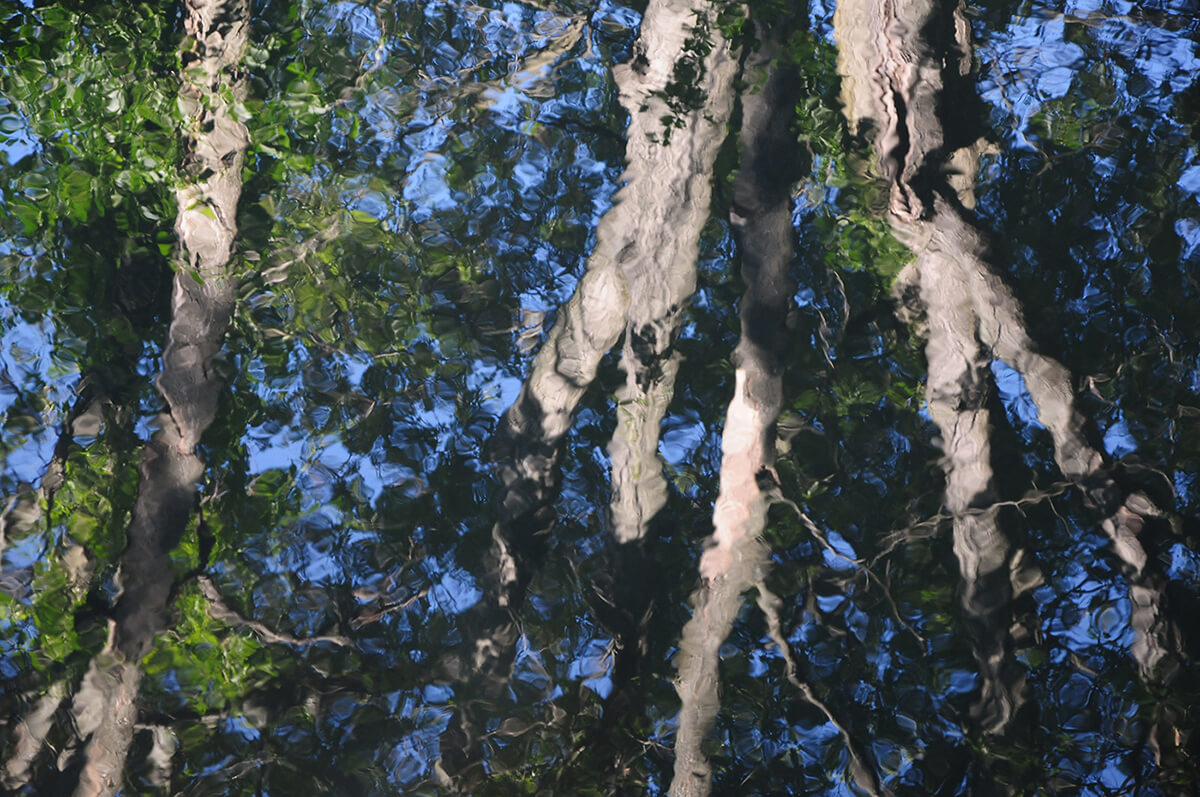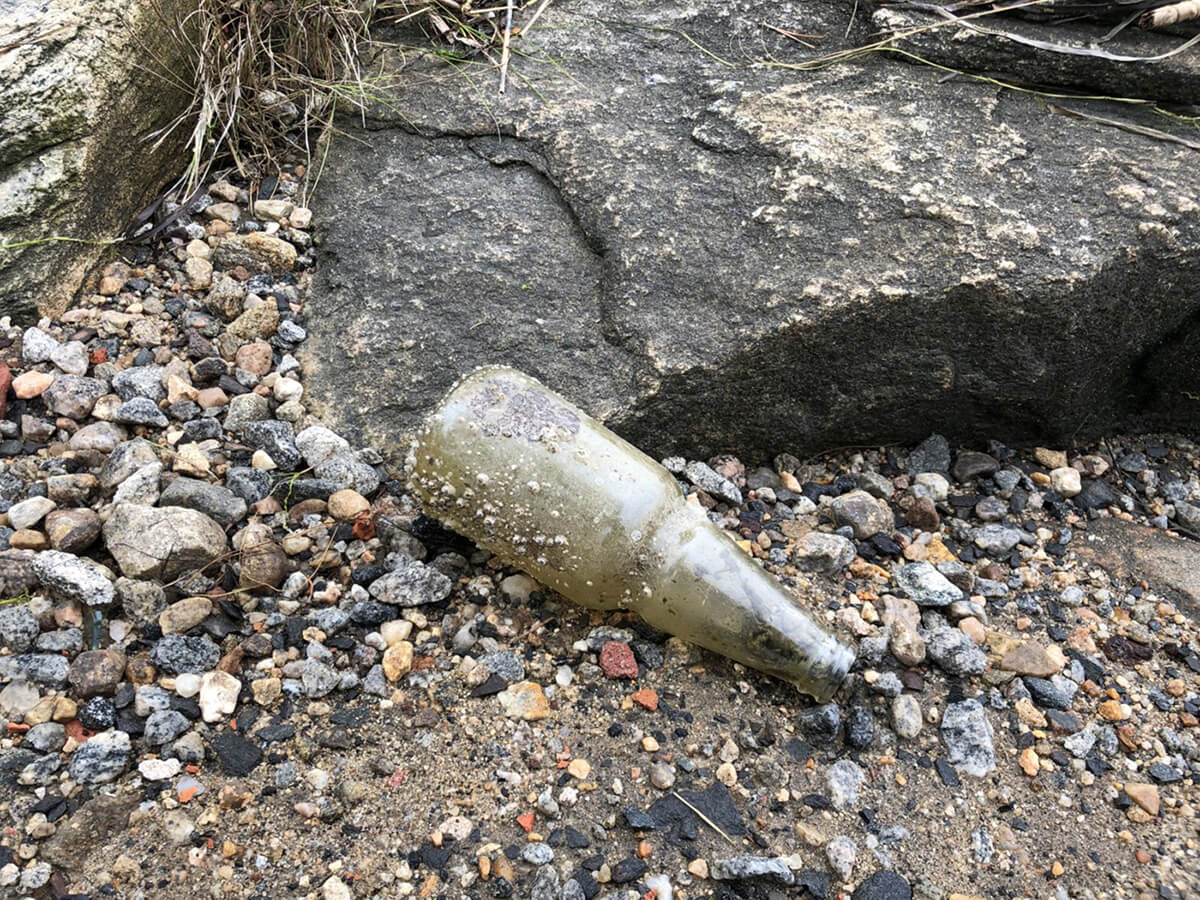
Trees reflect in the water of the Aberjona River in Winchester, Mass.
“I found water!”
That’s what I often type next to photos I post social media posts each time I come across and photograph a body of water, whether intentionally or not. Over the past few years, I have grown increasingly interested in exploring nature. I have a deep love for Earth and even created my own purpose statement: “Love and care for Earth and all of its life.” And while the intellectual part of my personality enjoys watching one documentary after another to learn everything I can about nature, the spiritual and physical parts of me crave exploration outside. This year in particular, I identified a deep need to visit places, some familiar and some new, where there is water.
I have long been aware of my deep love of the ocean. I could look out at the ocean in awe and wonder forever. And when I am there, I sure do. During my most recent visit to the ocean, I wrote myself a note to learn more and more about the ocean when I got home. That’s part of the beauty of nature; we can spend all our life exploring, and we will never run out of new places to experience nor facts to learn.
Every new place I visit, most of which are relatively close to my Massachusetts home, I reflect on how thankful I am to be here now, but wonder why I hadn’t explored here before. Sometimes, I look out at a body of water I’ve found and realize that I had driven by it for years and not noticed it was there. Perhaps I am not alone in that. Perhaps, too many of us have failed to notice the land and water around us. And that includes not noticing what we allow to happen to it.
I’ve noticed that it’s almost as common to find human-created waste in and around water as it is plants. A plastic bottle floating along seems just as familiar as a fish swimming by. And when I realize what I am witnessing, I wonder if the waste I am seeing made its way there by accident, such as by flying out of a truck during transport, or if it was intentionally thrown there by someone. Either way, there is a clear message that seems so obvious to me, yet so misaligned with modern human life.

The author spotted this discarded bottle on one of his walks to water.
There is no “away” to throw our human-created waste. Some of us know well, and many of us do not know, that even when we responsibly dispose of it, it will still ultimately end up on land or in water or in the atmosphere. In nature, organic waste is reused in some way in the circle of life and death. The fallen leaf of autumn becomes soil, and life in the soil provides nutrients to grow a new leaf in spring. This natural form of recycling is what we should aspire to, so we can be more certain that, from carelessness or not, there is no waste to flow to water.
Awareness of this can be transformative. Beyond my constant messages posted to friends on social media, I turn to groups of people, such as my fellow AMC Worcester Chapter members, to participate together in raising consciousness of each other and sharing in the active work needed to preserve our planet. Together, we offer a wonderful balance of education and action, making a way for each person to contribute in a way that they can. Along with all the fun activities that help us to connect with Earth, AMC has demonstrated a commitment to protecting the land and water, helping me and others to live our mission.
So, my journey through this life continues on with this exciting meaning. It is a journey of noticing land and water—and appreciating them both. It’s a journey of finding my way back to a human life more in line with Earth and all its life. This is a beautiful life to live. By some water in Paxton, Mass., I play with a butterfly. At the shore of a river running through Wilbraham, Mass., I am welcomed to the home of a dragonfly. And along the water in Nashua, N.H., I walk with a loved friend. This is truly loving and caring for Earth and its waters, teeming with life.
Are you inspired by this reader-submitted article? AMC wants to hear your story! Submit your idea here.